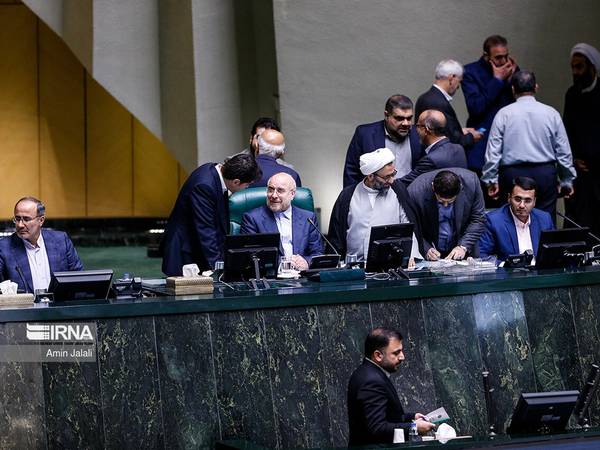The Iranian government and its ultra-hardliner supporters advocate adding Thursdays as the second official weekend day, allegedly to avoid the Jewish Sabbath.
Currently, Friday is the only official day of rest in Iran, but many government offices and private companies also observe part-time or complete closures on Thursdays. A bill submitted to parliament last year aims to shorten the weekly work hours from 44 to 40 and will be debated in the parliament in the coming days.
Some lawmakers such as Ali-Asghar Anabestani say the parliament’s Social Committee which has reviewed the bill has been convinced by the representatives of the public institutions, including chambers of commerce, that Saturday is a better option than Thursday as the second week end day, but its advisory decision may be overturned by more hardliner lawmakers when it comes to a vote.
President Ebrahim Raisi’s parliamentary deputy, Mohammad Hosseini, said Wednesday that the government is in favor of the Thursday option.
Many in Iran's private sector and others, however, say this will entail very negative consequences for Iran's foreign trade, tourism, and international relations because the workdays shared between Iran and the rest of the world will be down from Monday to Wednesday, leading to four consecutive days of no contact, if Thursday is approved.
They also argue that weekends in other Islamic countries in the region including Saudi Arabia, the UAE, Pakistan, Turkey, and Iraq is also on Friday and Saturday.
The arguments forwarded by government officials and supporters against Saturday make no reference to undesirability of having a rest day that is reminder of the Jewish Sabbath, but some private sector officials and media have disclosed that their objections are essentially ideological rather than practical or cultural as they claim.
“In various and numerous meetings with lawmakers…representatives of the chamber have pointed out the damage and erroneousness of designating Thursday as a weekend day … Their only argument against what we want is that Saturday is a Jewish day of rest!!!!” Ali Kolahi, Chairman of the Industries Committee of the Iran Chamber of Commerce posted on X on April 15.
Ideological hardliners dominating the parliament and the government have well-documented anti-Jewish and anti-Israeli positions. The Islamic Republic’s ruling regime has spent tens of billions of dollars through the past four decades to create and support anti-Israeli groups and campaigns in the region and across the world.
Those who object to designating Saturday as a day of rest cannot refute the arguments of businesspeople, an editorial by the reformist Ham-Mihan this week said. “The problem lies elsewhere, meaning that for millennia Saturday has been known as a Jewish rest day like Friday for Muslims or Sundays for the Christian,” the editorial said.
Amir-Hossein Hosseini, a businessman with hardline views, too, referred to such considerations in a tweet. Designating Saturday as a weekend day is like a “cultural, economic, religious, and social surgery” that only serves the interests of a “few members of the Chamber of Commerce”, he said while accusing them of harboring “anti-religious” thoughts.
The private sector has tried lobbying with top Shia clerics who can issue guidance in such matters to confirm that Thursday is not religiously significant or sacred like Friday and the chairman of Iran Chamber of Commerce, Samad Hassanzadeh in a letter on April 17 even appealed to Supreme Leader Ali Khamenei to support the private sector’s position.
Those in favor of Saturdays have also argued that private sector trade companies may decide to emigrate to other countries such as the UAE or Oman to facilitate their activities if Thursday is approved.
